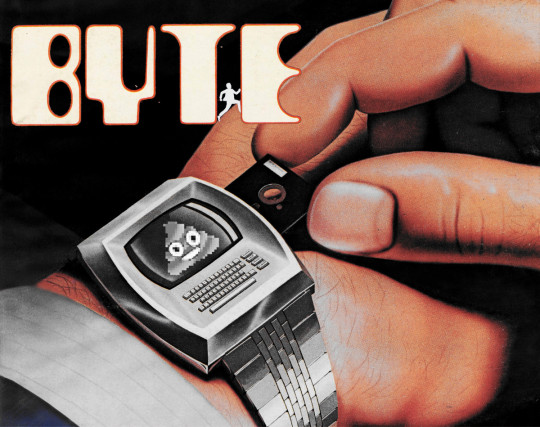#Web Magazine
Explore tagged Tumblr posts
Text
WEB MAGAZINE
PARCO CRUSIE




SHOGO Interview
https://shibuya.parco.jp/feature/detail/?id=6678
HIROTO Interview
https://shibuya.parco.jp/feature/detail/?id=6677
HIROTO and SHOGO Interview
https://shibuya.parco.jp/feature/detail/?id=6679
#INI#INI_TAG ME#PARCO#SHIBUYA PARCO#web magazine#PARCO CRUSIE#interview#nishi hiroto#tajima shogo#fashion#japanese fashion
6 notes
·
View notes
Text

CASA LARANJEIRAS SPLITS INTO TWO GEOMETRIC BLOCKS
0 notes
Text

GeoCities Wired - April 1997
2K notes
·
View notes
Text

#lip piercing#facial piercings#piercing#body mods#gothic rock#gothic#gothcore#mall goth#goth aesthetic#alternative goth#gothic style#goth makeup#gothgoth#goth outfit#goth magazine#goth#alt style#alternative fashion#alt girl#alternative rock#alternative#hot topic#vampire freaks#lip service#web finds#photography#gore lover#<3
1K notes
·
View notes
Text









(x)
1K notes
·
View notes
Text

ೃ༄ੈ✩‧₊˚
#room#bedroom#junko mizuno#maximalism#toys#posters#bookshelf#computer#desk#dollhouse#magazine#cute#kawaii#flickr#old web#old internet#2006
431 notes
·
View notes
Text
There Were Always Enshittifiers

I'm on a 20+ city book tour for my new novel PICKS AND SHOVELS. Catch me in DC TONIGHT (Mar 4), and in RICHMOND TOMORROW (Mar 5). More tour dates here. Mail-order signed copies from LA's Diesel Books.

My latest Locus column is "There Were Always Enshittifiers." It's a history of personal computing and networked communications that traces the earliest days of the battle for computers as tools of liberation and computers as tools for surveillance, control and extraction:
https://locusmag.com/2025/03/commentary-cory-doctorow-there-were-always-enshittifiers/
The occasion for this piece is the publication of my latest Martin Hench novel, a standalone book set in the early 1980s called "Picks and Shovels":
https://us.macmillan.com/books/9781250865908/picksandshovels
The MacGuffin of Picks and Shovels is a "weird PC" company called Fidelity Computing, owned by a Mormon bishop, a Catholic priest, and an orthodox rabbi. It sounds like the setup for a joke, but the punchline is deadly serious: Fidelity Computing is a pyramid selling cult that preys on the trust and fellowship of faith groups to sell the dreadful Fidelity 3000 PC and its ghastly peripherals.
You see, Fidelity's products are booby-trapped. It's not merely that they ship with programs whose data-files can't be read by apps on any other system – that's just table stakes. Fidelity's got a whole bag of tricks up its sleeve – for example, it deliberately damages a specific sector on every floppy disk it ships. The drivers for its floppy drive initialize any read or write operation by checking to see if that sector can be read. If it can, the computer refuses to recognize the disk. This lets the Reverend Sirs (as Fidelity's owners style themselves) run a racket where they sell these deliberately damaged floppies at a 500% markup, because regular floppies won't work on the systems they lure their parishioners into buying.
Or take the Fidelity printer: it's just a rebadged Okidata ML-80, the workhorse tractor feed printer that led the market for years. But before Fidelity ships this printer to its customers, they fit it with new tractor feed sprockets whose pins are slightly more widely spaced than the standard 0.5" holes on the paper you can buy in any stationery store. That way, Fidelity can force its customers to buy the custom paper that they exclusively peddle – again, at a massive markup.
Needless to say, printing with these wider sprocket holes causes frequent jams and puts a serious strain on the printer's motors, causing them to burn out at a high rate. That's great news – for Fidelity Computing. It means they get to sell you more overpriced paper so you can reprint the jobs ruined by jams, and they can also sell you their high-priced, exclusive repair services when your printer's motors quit.
Perhaps you're thinking, "OK, but I can just buy a normal Okidata printer and use regular, cheap paper, right?" Sorry, the Reverend Sirs are way ahead of you: they've reversed the pinouts on their printers' serial ports, and a normal printer won't be able to talk to your Fidelity 3000.
If all of this sounds familiar, it's because these are the paleolithic ancestors of today's high-tech lock-in scams, from HP's $10,000/gallon ink to Apple and Google's mobile app stores, which cream a 30% commission off of every dollar collected by an app maker. What's more, these ancient, weird misfeatures have their origins in the true history of computing, which was obsessed with making the elusive, copy-proof floppy disk.
This Quixotic enterprise got started in earnest with Bill Gates' notorious 1976 "open letter to hobbyists" in which the young Gates furiously scolds the community of early computer hackers for its scientific ethic of publishing, sharing and improving the code that they all wrote:
https://en.wikipedia.org/wiki/An_Open_Letter_to_Hobbyists
Gates had recently cloned the BASIC programming language for the popular Altair computer. For Gates, his act of copying was part of the legitimate progress of technology, while the copying of his colleagues, who duplicated Gates' Altair BASIC, was a shameless act of piracy, destined to destroy the nascent computing industry:
As the majority of hobbyists must be aware, most of you steal your software. Hardware must be paid for, but software is something to share. Who cares if the people who worked on it get paid?
Needless to say, Gates didn't offer a royalty to John Kemeny and Thomas Kurtz, the programmers who'd invented BASIC at Dartmouth College in 1963. For Gates – and his intellectual progeny – the formula was simple: "When I copy you, that's progress. When you copy me, that's piracy." Every pirate wants to be an admiral.
For would-be ex-pirate admirals, Gates's ideology was seductive. There was just one fly in the ointment: computers operate by copying. The only way a computer can run a program is to copy it into memory – just as the only way your phone can stream a video is to download it to its RAM ("streaming" is a consensus hallucination – every stream is a download, and it has to be, because the internet is a data-transmission network, not a cunning system of tubes and mirrors that can make a picture appear on your screen without transmitting the file that contains that image).
Gripped by this enshittificatory impulse, the computer industry threw itself headfirst into the project of creating copy-proof data, a project about as practical as making water that's not wet. That weird gimmick where Fidelity floppy disks were deliberately damaged at the factory so the OS could distinguish between its expensive disks and the generic ones you bought at the office supply place? It's a lightly fictionalized version of the copy-protection system deployed by Visicalc, a move that was later publicly repudiated by Visicalc co-founder Dan Bricklin, who lamented that it confounded his efforts to preserve his software on modern systems and recover the millions of data-files that Visicalc users created:
http://www.bricklin.com/robfuture.htm
The copy-protection industry ran on equal parts secrecy and overblown sales claims about its products' efficacy. As a result, much of the story of this doomed effort is lost to history. But back in 2017, a redditor called Vadermeer unearthed a key trove of documents from this era, in a Goodwill Outlet store in Seattle:
https://www.reddit.com/r/VintageApple/comments/5vjsow/found_internal_apple_memos_about_copy_protection/
Vaderrmeer find was a Apple Computer binder from 1979, documenting the company's doomed "Software Security from Apple's Friends and Enemies" (SSAFE) project, an effort to make a copy-proof floppy:
https://archive.org/details/AppleSSAFEProject
The SSAFE files are an incredible read. They consist of Apple's best engineers beavering away for days, cooking up a new copy-proof floppy, which they would then hand over to Apple co-founder and legendary hardware wizard Steve Wozniak. Wozniak would then promptly destroy the copy-protection system, usually in a matter of minutes or hours. Wozniak, of course, got the seed capital for Apple by defeating AT&T's security measures, building a "blue box" that let its user make toll-free calls and peddling it around the dorms at Berkeley:
https://512pixels.net/2018/03/woz-blue-box/
Woz has stated that without blue boxes, there would never have been an Apple. Today, Apple leads the charge to restrict how you use your devices, confining you to using its official app store so it can skim a 30% vig off every dollar you spend, and corralling you into using its expensive repair depots, who love to declare your device dead and force you to buy a new one. Every pirate wants to be an admiral!
https://www.vice.com/en/article/tim-cook-to-investors-people-bought-fewer-new-iphones-because-they-repaired-their-old-ones/
Revisiting the early PC years for Picks and Shovels isn't just an excuse to bust out some PC nostalgiacore set-dressing. Picks and Shovels isn't just a face-paced crime thriller: it's a reflection on the enshittificatory impulses that were present at the birth of the modern tech industry.
But there is a nostalgic streak in Picks and Shovels, of course, represented by the other weird PC company in the tale. Computing Freedom is a scrappy PC startup founded by three women who came up as sales managers for Fidelity, before their pangs of conscience caused them to repent of their sins in luring their co-religionists into the Reverend Sirs' trap.
These women – an orthodox lesbian whose family disowned her, a nun who left her order after discovering the liberation theology movement, and a Mormon woman who has quit the church over its opposition to the Equal Rights Amendment – have set about the wozniackian project of reverse-engineering every piece of Fidelity hardware and software, to make compatible products that set Fidelity's caged victims free.
They're making floppies that work with Fidelity drives, and drives that work with Fidelity's floppies. Printers that work with Fidelity computers, and adapters so Fidelity printers will work with other PCs (as well as resprocketing kits to retrofit those printers for standard paper). They're making file converters that allow Fidelity owners to read their data in Visicalc or Lotus 1-2-3, and vice-versa.
In other words, they're engaged in "adversarial interoperability" – hacking their own fire-exits into the burning building that Fidelity has locked its customers inside of:
https://www.eff.org/deeplinks/2019/10/adversarial-interoperability
This was normal, back then! There were so many cool, interoperable products and services around then, from the Bell and Howell "Black Apple" clones:
https://forum.vcfed.org/index.php?threads%2Fbell-howell-apple-ii.64651%2F
to the amazing copy-protection cracking disks that traveled from hand to hand, so the people who shelled out for expensive software delivered on fragile floppies could make backups against the inevitable day that the disks stopped working:
https://en.wikipedia.org/wiki/Bit_nibbler
Those were wild times, when engineers pitted their wits against one another in the spirit of Steve Wozniack and SSAFE. That era came to a close – but not because someone finally figured out how to make data that you couldn't copy. Rather, it ended because an unholy coalition of entertainment and tech industry lobbyists convinced Congress to pass the Digital Millennium Copyright Act in 1998, which made it a felony to "bypass an access control":
https://www.eff.org/deeplinks/2016/07/section-1201-dmca-cannot-pass-constitutional-scrutiny
That's right: at the first hint of competition, the self-described libertarians who insisted that computers would make governments obsolete went running to the government, demanding a state-backed monopoly that would put their rivals in prison for daring to interfere with their business model. Plus ça change: today, their intellectual descendants are demanding that the US government bail out their "anti-state," "independent" cryptocurrency:
https://www.citationneeded.news/issue-78/
In truth, the politics of tech has always contained a faction of "anti-government" millionaires and billionaires who – more than anything – wanted to wield the power of the state, not abolish it. This was true in the mainframe days, when companies like IBM made billions on cushy defense contracts, and it's true today, when the self-described "Technoking" of Tesla has inserted himself into government in order to steer tens of billions' worth of no-bid contracts to his Beltway Bandit companies:
https://www.reuters.com/world/us/lawmakers-question-musk-influence-over-verizon-faa-contract-2025-02-28/
The American state has always had a cozy relationship with its tech sector, seeing it as a way to project American soft power into every corner of the globe. But Big Tech isn't the only – or the most important – US tech export. Far more important is the invisible web of IP laws that ban reverse-engineering, modding, independent repair, and other activities that defend American tech exports from competitors in its trading partners.
Countries that trade with the US were arm-twisted into enacting laws like the DMCA as a condition of free trade with the USA. These laws were wildly unpopular, and had to be crammed through other countries' legislatures:
https://pluralistic.net/2024/11/15/radical-extremists/#sex-pest
That's why Europeans who are appalled by Musk's Nazi salute have to confine their protests to being loudly angry at him, selling off their Teslas, and shining lights on Tesla factories:
https://www.malaymail.com/news/money/2025/01/24/heil-tesla-activists-protest-with-light-projection-on-germany-plant-after-musks-nazi-salute-video/164398
Musk is so attention-hungry that all this is as apt to please him as anger him. You know what would really hurt Musk? Jailbreaking every Tesla in Europe so that all its subscription features – which represent the highest-margin line-item on Tesla's balance-sheet – could be unlocked by any local mechanic for €25. That would really kick Musk in the dongle.
The only problem is that in 2001, the US Trade Rep got the EU to pass the EU Copyright Directive, whose Article 6 bans that kind of reverse-engineering. The European Parliament passed that law because doing so guaranteed tariff-free access for EU goods exported to US markets.
Enter Trump, promising a 25% tariff on European exports.
The EU could retaliate here by imposing tit-for-tat tariffs on US exports to the EU, which would make everything Europeans buy from America 25% more expensive. This is a very weird way to punish the USA.
On the other hand, not that Trump has announced that the terms of US free trade deals are optional (for the US, at least), there's no reason not to delete Article 6 of the EUCD, and all the other laws that prevent European companies from jailbreaking iPhones and making their own App Stores (minus Apple's 30% commission), as well as ad-blockers for Facebook and Instagram's apps (which would zero out EU revenue for Meta), and, of course, jailbreaking tools for Xboxes, Teslas, and every make and model of every American car, so European companies could offer service, parts, apps, and add-ons for them.
When Jeff Bezos launched Amazon, his war-cry was "your margin is my opportunity." US tech companies have built up insane margins based on the IP provisions required in the free trade treaties it signed with the rest of the world.
It's time to delete those IP provisions and throw open domestic competition that attacks the margins that created the fortunes of oligarchs who sat behind Trump on the inauguration dais. It's time to bring back the indomitable hacker spirit that the Bill Gateses of the world have been trying to extinguish since the days of the "open letter to hobbyists." The tech sector built a 10 foot high wall around its business, then the US government convinced the rest of the world to ban four-metre ladders. Lift the ban, unleash the ladders, free the world!
In the same way that futuristic sf is really about the present, Picks and Shovels, an sf novel set in the 1980s, is really about this moment.
I'm on tour with the book now – if you're reading this today (Mar 4) and you're in DC, come see me tonight with Matt Stoller at 6:30PM at the Cleveland Park Library:
https://www.loyaltybookstores.com/picksnshovels
And if you're in Richmond, VA, come down to Fountain Bookshop and catch me with Lee Vinsel tomorrow (Mar 5) at 7:30PM:
https://fountainbookstore.com/events/1795820250305

If you'd like an essay-formatted version of this post to read or share, here's a link to it on pluralistic.net, my surveillance-free, ad-free, tracker-free blog:
https://pluralistic.net/2025/03/04/object-permanence/#picks-and-shovels
#pluralistic#picks and shovels#history#web theory#marty hench#martin hench#red team blues#locus magazine#drm#letter to computer hobbyists#bill gates#computer lib#science fiction#crime fiction#detective fiction
498 notes
·
View notes
Text

SO-EN magazine July 1998
#japanese magazine#jbeauty#so-en magazine#wish i knew who this model is#aesthetic#jfashion#web finds#i NEED that top
334 notes
·
View notes
Text
More Slipknot finds !!









#90s mallgoth#90s goth#90s mall goth#mallgoth#2000s goth#metal#sid wilson#joey jordison#paul gray#chris fehn#jim root#craig jones#shawn crahan#mick thomson#corey taylor#slipknot#band#nu metal#web finds#magazine#image
2K notes
·
View notes
Text
Turenscape transforms concrete sea wall into "resilient public space"
#Architecture#Design#Technology#OnlineMagazine#Web Magazine#Arts#Landscape design#Arts & Architecture
0 notes
Text
river phoenix and keanu reeves talking about each other
"I've always loved you, River. River is my best friend and I don't have many of them." - Keanu "That's really sweet, Keany." - River
"Every evening that we don't spend together we're on the phone." - Keanu
"He's beautiful, inventive, funny and creative, too." - Keanu
"I really would like to do Shakespeare with River. I think we’d have a hoot. We could do A Midsummer Night’s Dream or Romeo and Juliet." - Keanu "I’ll be Juliet." - River
"Meeting River was a revelation." - Keanu
"There was a lot of deep love." - River (about "Private Idaho")
"We brought good out in each other." - Keanu
"River's the best, he's a god, he's the king. I pray to the church of River Phoenix!" - Keanu
"(After a long silence) River was an exceptional person, incredible. Where is my Juliet? Bullshit. Fuck! (After another long silence) He was a really good guy." - Keanu
"I don't have any friends in the business. Just River. Oh where, oh where has my Juliet gone?" - Keanu
"I don't know what I'm going to do when I get older, do you, Keany?" - River "I'd like to maybe get a boat someday and sail around. Maybe I'll settle down and I'll raise a family. I've always wanted kids." - Keanu "I didn't know that --" - River "You never asked, dude." - Keanu "I really want kids too." - River
"It’s weird speaking about him in the past. I hate speaking about him in the past. So I almost always gotta keep it present." - Keanu
"I liked the guy and wanted to work with him." - River
"Keany, he's a sweetheart. People don't understand him." - River
BONUS: "Keanu and River were kind of soulmates, they had known each other for a few years… but they were." - Gus Van Sant
BONUS: "Suddenly he and Reeves are off, excitedly exploring the possibility of doing Shakespeare together. They stand nose to nose- Phoenix newly bleached blond as part of his bid to play the young Andy Warhol in a future Van Sant biopic, Reeves dark-haired and tanned- like positive and negative images of each other. They sustain their banter throughout the meal, as one interrupts the other, but only to complete his thought." - Interview Magazine
BONUS: "I watched how Keanu grieved. And oh, did he grieve for his friend. He’s very private, but he couldn’t hide that. And just to see that a man like that was able to grieve. And I remember thinking, God, if that’s the tip of the iceberg of his depth, and his level of love and care for a friend—that just draws you in." - Sandra Bullock
BONUS: "Talking about Phoenix, Reeves has one of what he calls his “excellent panic attacks”, and his china-doll complexion becomes whiter than white; his brown eyes turn black. Time to change the subject." - SKY Magazine
#girl blogging#i am just a girl#i am a simple woman#missy kitty posting#web finds#rivvy baby#keany#river phoenix#river jude phoenix#keanu reeves#keanu#private idaho#magazines#sandra bullock#i am a woman like her#gus van sant#FINALLY DONE#baby fever tag
165 notes
·
View notes
Text

SurfControl PC Mag - July 2002
775 notes
·
View notes
Text




#mall goth#gothic#gothcore#goth aesthetic#alternative goth#gothic style#goth style#goth makeup#gothgoth#goth magazine#goth#alt style#alternative fashion#alt girl#alternative rock#alternative#hot topic#vampire freaks#lip service#makeup#web finds#photography#gore lover#<3
793 notes
·
View notes
Text

✫・゚*.2008・゚✫*.
#2008#flickr#digital archiving#digitalmemoriez#nostalgic#image archiving#2000s nostalgia#late 2000s#alt#alt fashion#nostalgia#magazines#fashion magazines#kawaii#japanese fashion#japan center london#flickr finds#flickr archive#web finds
163 notes
·
View notes
Text






(x)
601 notes
·
View notes